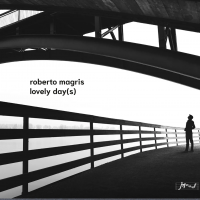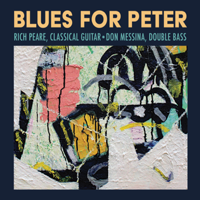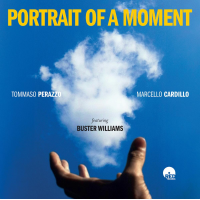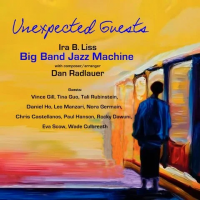Home » Jazz Articles » Multiple Reviews » Frank Wess: Basel 1956 Part 1; Once is Not Enough; Hank ...
Frank Wess: Basel 1956 Part 1; Once is Not Enough; Hank and Frank II; Plays the Music of Irving Berlin (except one)
 |  |  |  |
Count Basie Basel 1956 part 1 TCB 2009 | Frank Wess Once Is Not Enough Labeth Music 2009 | Hank Jones and Frank Wess Hank and Frank Lineage 2009 | John Bunch Plays the Music of Irving Berlin (except one) Arbors 2008 |
At 87,

Frank Wess
saxophone, tenor1922 - 2013
Coming up in the waning big band era of the late '40s, he played a robust, swinging tenor sax (also a smoother, often lead, alto sax), finally gaining prominence and spending most of his 30s and early 40s in Count Basie's New Testament big band. He also brought the flute into that band (having studied it before joining Basie), making him the first recognized jazz flutist of the post-Swing years. On Basel 1956 Part 1, a fairly early live recording of that New Testament band, he is part of the "two Franks" (Wess and Foster) tenor sax tandem in a big band that was as representative in its dynamics and unstoppable, propulsive swing of America's dominant spirit of the time as the dream-mobile behemoths that came out of Detroit. Wess' flute feature "Flute Juice" is one of his two solo spots, along with a rousing tenor sax contribution to "Sixteen Men Swingin'". The album itself is an adequately recorded, not more than typical, document of the Basie band in its New Testament prime, most notable for Track 9, "Unknown Title," a fetching heartbeat tempo piece with solos from trombone and muted trumpet (probably Joe Newman).
After leaving Basie, Wess kept busy in bands big and small, studio gigs and countless live and recorded sessions around New York, becoming a staple of the Big Apple jazz scene. The three new recordings here showcase different facets of Wess' current career, as well as diverse approaches to the CD album concept, with its invitingly long time span. One is a showcase for Wess' playing and composing (for a little big band), the second a collaboration with another member of the Swing-to-bop generation (

Hank Jones
piano1918 - 2010
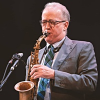
Ted Nash
saxophoneb.1960

Scott Robinson
saxophone, tenorb.1959

Winard Harper
drumsb.1962
Hank and Frank II, despite the title, only features Wess on six of the 15 tracks (and only on tenor sax, not flute too as the credits imply). Pianist Hank Jones is on all the tracks, in a duo context on five (for Wess and Jones in duo pick up Hank and Frank I), four of them with the underrated singer Marion Cowings, who includes such rarities as a paean to Ella and Ellington and his own evocative lyrics to Quincy Jones' "Quintessence". Wess adds Lester-ian obligati and solos to two other vocal tracks with the full band (guitarist Ilya Lushtak, bassist John Webber and drummer

Mickey Roker
drums1932 - 2017
For Wess' flute in an intimate chamber jazz setting where he can be subtly swinging and gracefully lyrical, hear

John Bunch
piano1921 - 2010

Frank Vignola
guitarb.1965
Tracks and Personnel
Basel 1956 part 1
Tracks: You For Me; Shiny Stockings; Cherry Point; Sixteen Men Swingin'; Eventide; Mambo Inn; Backstage Blues; Flute Juice; Unknown Title; Blee Blop Blues; Yesterdays; Eddie Jones' Blues.
Personnel: Count Basie: piano; Wendell Culley, Reunald Jones Sr., Thad Jones, Joe Newman: trumpets; Henry Coker, Bill Hughes, Benny Powell: trombones; Marshal Royal, Bill Graham, Frank Foster, Frank Wess, Charlie Fowlkes: reeds; Freddie Green: guitar; Eddie Jones: bass; Sonny Payne: drums.
Once Is Not Enough
Tracks: Once Is Not Enough; Sara's Song; You Made a Good Move; Dementia, My Darling; Sweet and Lovely; Backfire; Lush Life; Fly Me to the Moon (In Other Words); Tryin' to Make My Blues Turn Green.
Personnel: Frank Wess: tenor saxophone, flute; Frank Greene: trumpet; Terell Stafford: trumpet; Steve Turre: trombone; Ted Nash: alto saxophone, flute; Scott Robinson: bass saxophone, baritone saxophone, flute; Gerald Clayton: piano; Michael Weiss: piano (4, 7); Peter Washington: bass; Rufus Reid: bass (4, 7); Winard Harper: drums.
Hank and Frank
Tracks: Sunday; Lord Prepare Me; More Than You Know; If I Were A Bell; I Had The Craziest Dream; When Your Lover Has Gone; Chasing The Bird; Ill Wind; Jordu; The First Time I Saw Ella; Quintessence; You Don't Know What Love Is; Stay As Sweet As You Are; For All We Know; I'll Be Seeing You.
Personnel: Hank Jones: piano; Frank Wess: flute, saxophone, tenor saxophone; Mickey Roker: drums; John Webber: upright bass, bass guitar; Ilya Lushtak: guitar; Marion Cowings: vocals.
Plays the Music of Irving Berlin (except one)
Tracks: Soft Lights and Sweet Music; Coquette; How Deep Is The Ocean?; What?ll I Do?; I?ve Got My Love to Keep Me Warm; The Best Thing For You; Isn?t This a Lovely Day?; I?m Putting All My Eggs in One Basket; They Say It?s Wonderful; All By Myself; Better Luck Next Time; Change Partners.
Personnel: John Bunch: piano; Frank Vignola: guitar; John Webber: bass; Frank Wess: flute (2, 3, 5, 7, 9, 12).
Tags
Frank Wess
Multiple Reviews
George Kanzler
United States
New York
New York City
Hank Jones
Ted Nash
Scott Robinson
Winard Harper
Mickey Roker
John Bunch
Frank Vignola
Comments
PREVIOUS / NEXT
Support All About Jazz
 All About Jazz has been a pillar of jazz since 1995, championing it as an art form and, more importantly, supporting the musicians who make it. Our enduring commitment has made "AAJ" one of the most culturally important websites of its kind, read by hundreds of thousands of fans, musicians and industry figures every month.
All About Jazz has been a pillar of jazz since 1995, championing it as an art form and, more importantly, supporting the musicians who make it. Our enduring commitment has made "AAJ" one of the most culturally important websites of its kind, read by hundreds of thousands of fans, musicians and industry figures every month.
Go Ad Free!
To maintain our platform while developing new means to foster jazz discovery and connectivity, we need your help. You can become a sustaining member for as little as $20 and in return, we'll immediately hide those pesky ads plus provide access to future articles for a full year. This winning combination vastly improves your AAJ experience and allow us to vigorously build on the pioneering work we first started in 1995. So enjoy an ad-free AAJ experience and help us remain a positive beacon for jazz by making a donation today.

New York City
Concert Guide | Venue Guide | Local Businesses
| More...






 Buy Now
Buy Now


